The Search for Simplicity: How Assist Runs on Quip
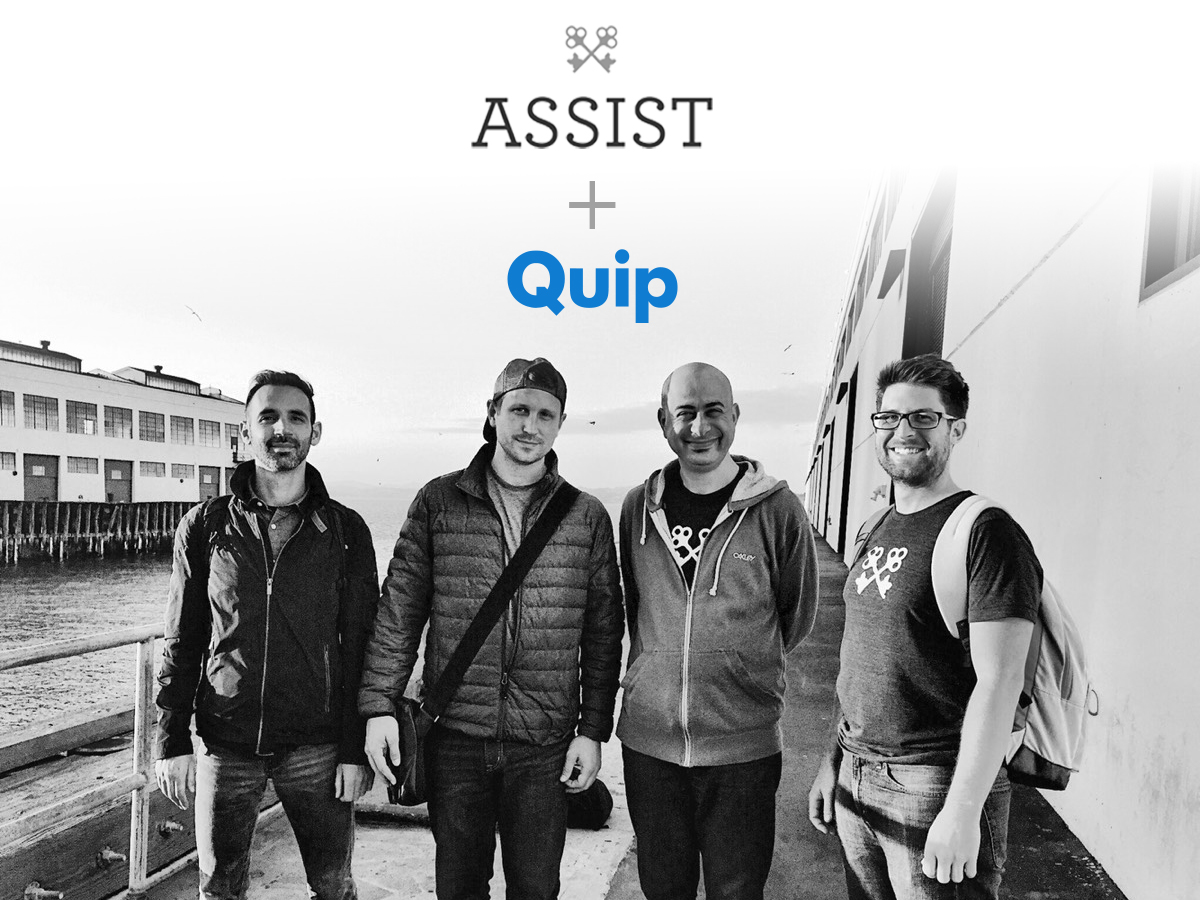
Assist is a startup focused on building simple and useful products that connect people. This philosophy is apparent in their innovative new search app as well as their approach to getting work done. We sat down with Assist's core team: Shane Mac, Peter Boctor, Adam Hofmann, and Giovanni Vatieri. They explained how Assist is turning search on its head and how the entire company runs on Quip.
What is Assist?
Assist enables you to message instantly with a friendly local. Their goal is to answer everything local: Where to go, what to do, where to stay, where to drink, where to eat. They've also made it dead simple to book reservations, order a Lyft, book a hotel, and more — just like asking a friend.
Assist believes that messaging is the new search. They want the experience to seem as simple as the Google homepage, but with messaging at the core. They contend that a human layer on top of endless search results is how to create connections and amazing experiences.
Assist's Shared Folder:
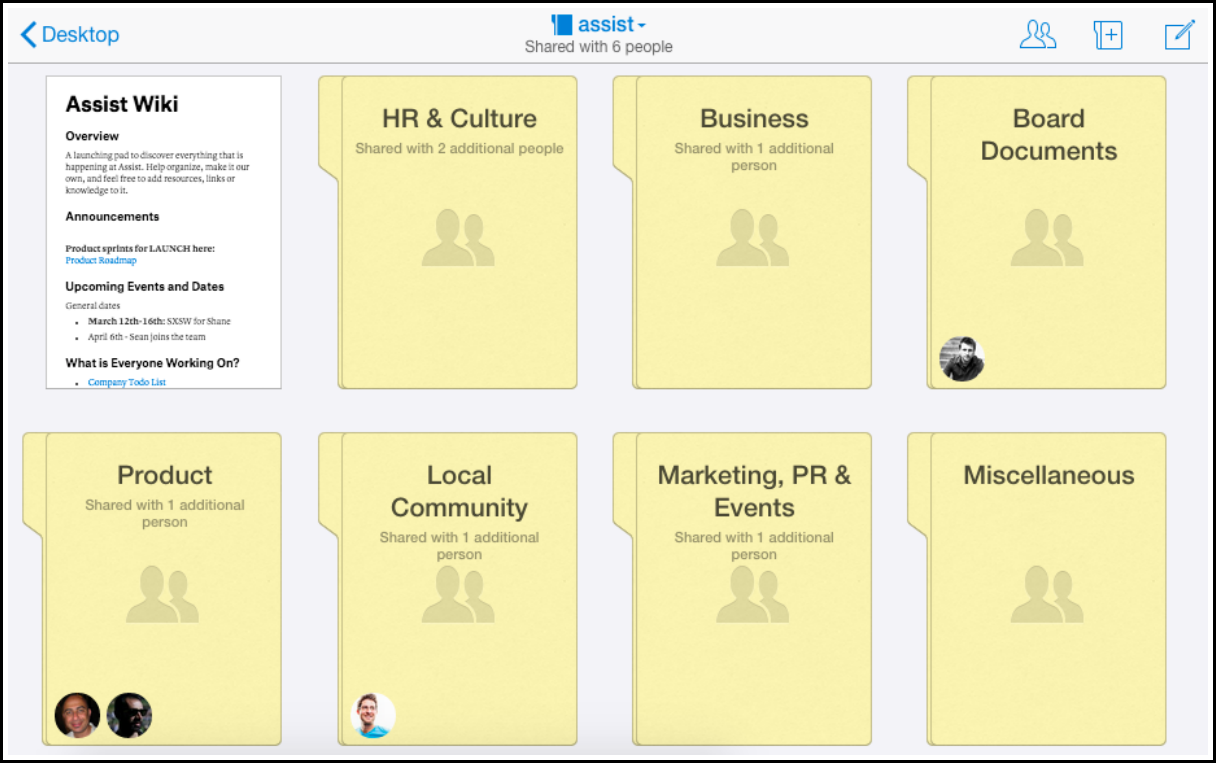
Lose the Tools, Get More Done
For Assist, Quip acts like a Swiss Army knife. CEO, Shane Mac and his team like the simplicity of having one hub for everything — the company intranet, project management utility, chat platform, word processor, and spreadsheet tool.
Shane is a firm believer in a simple and agile toolkit and does not appreciate when tools get in the way of work getting done. He elaborates, “I hate more tools... I mean, I love great tools, but I am not a fan of always using a new project management system. Tools don't matter because there's always one that is good enough. It's how you manage yourself that does.” This focus on simplicity and efficiency has allowed Shane and his team to boil their toolkit down to the essentials.
The consolidation of tools happened organically as Assist gained a few new hires. They reached the point of needing a chat tool in addition to a project management utility. They had been using Slack for team communication, Quip for projects and productivity, and SMS for immediate communication. This set up is pretty typical for many startups and was working well for the Assist team, but they found a way to streamline it further:
During one of Adam's first few days, he typed “Quip / Slack / SMS?” in a Quip chat in an attempt to clear up which channel the thread should live. It was a lightbulb moment for Shane. They decided to keep chat within Quip to avoid confusion about where a conversation should take place. The way Shane sees it, “Quip is a utility, and there is chat happening all around the stuff you are working on. So we should just keep chat in there rather than moving to another place.” After deciding to consolidate chat in Quip, the team set up group channels for conversations between specific teams.
In addition to having chat and project management in Quip, the team takes advantage of integrations to stay on top of notifications from other sources like Twitter, Stripe, Crashylitics, and Github.
Making the World Feel Smaller
The Assist team is always on the go. Whether traveling to a conference or at the offices in Seattle or San Francisco, the team uses Quip as a way for everyone in the company to work in the same place. As a startup that rapidly develops new product features, it's helpful to have a place for conversation around what is being worked on at any given moment.
Quip not only used to connect different offices, but is also used for mobile team communication. Shane explains, “I am on my phone a lot of the time. I like how I can edit documents and have conversations so seamlessly on my phone.” It enables Shane and the rest of the team to be on top of everything going on in the company and always be available — even when not at their computer.
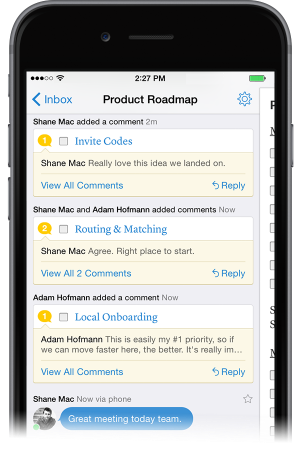
A Launch Pad for the Team
Quip is not only used for project collaboration and immediate communication, but also as a company intranet — it's the place of record for everything going on. Assist's top-level wiki document clearly illustrates this idea. The document is pinned to the desktop for every employee and contains information on key dates, what's being worked on, the state of the company, and culture and philosophy of the organization. Shane explains the importance of this document, “It allows every new employee to see back to the beginning of the company and feel like they know exactly how we got to where we are today.”
Assist's Wiki Document:
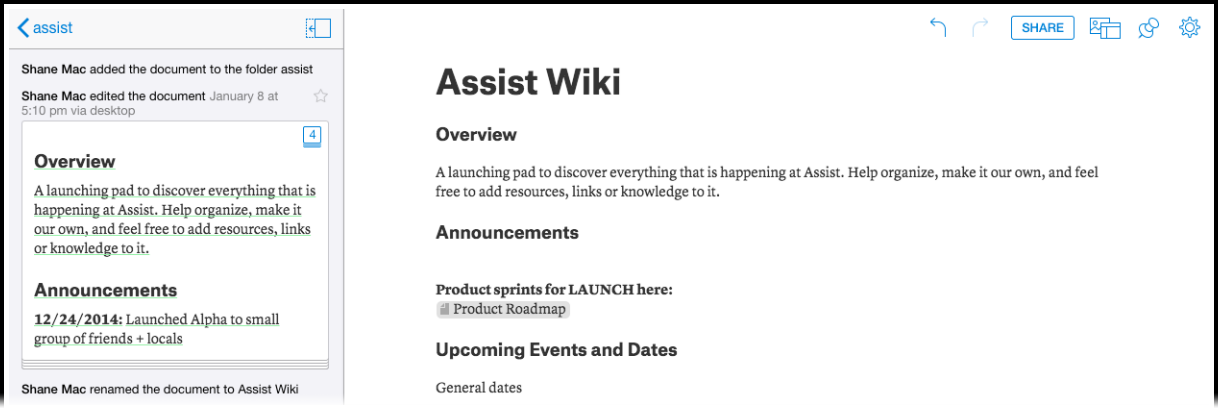
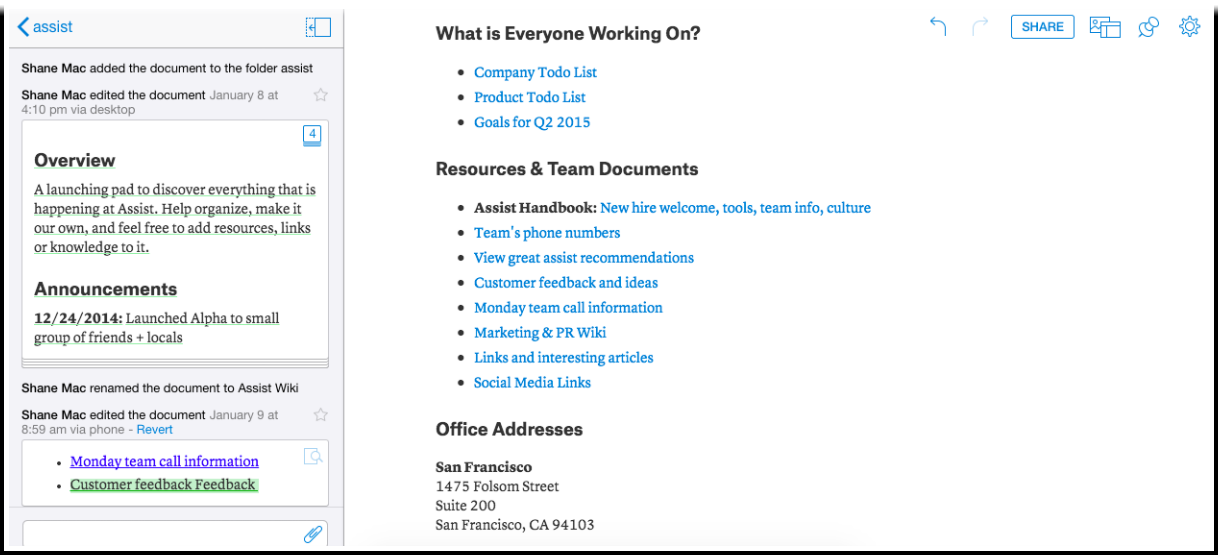
The benefit of keeping a company wiki can not be understated. As the company grows, the wiki will become the living source of history and documentation and will further promote a culture of openness.
Continuing the Conversation
The team at Assist has found Quip to be a natural fit for their culture of transparency, collaboration, and an uncomplicated work environment. If you want early access to Assist or if you want to become a local expert, email Adam. If you want to ask Shane any questions about how to run an efficient start up, hit him up on Twitter.
If you want to find out more about how your team can use Quip, drop us a line.
